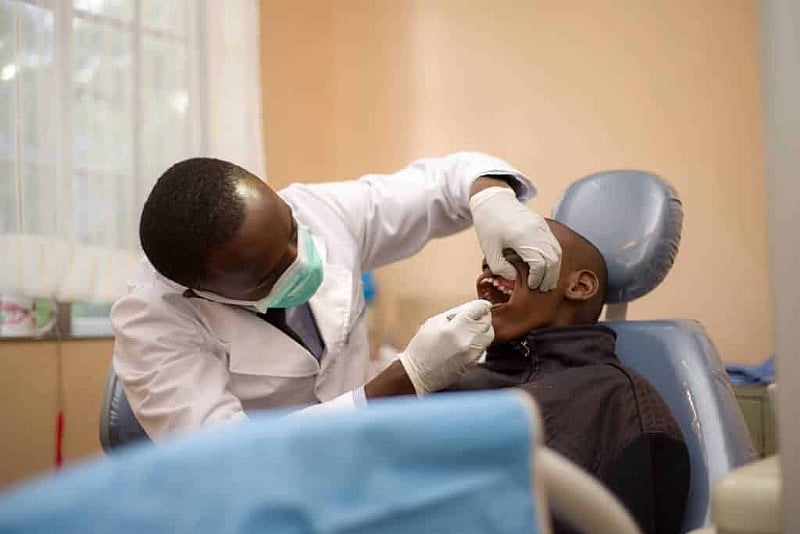Ghana’s oral health sector is currently facing a significant crisis stemming from the utilization of unregistered Oral Health Professionals at various health facilities. This issue has arisen after the government has failed to provide financial clearance for the posting of thousands of these professionals since 2019, according to the President of the Oral Health Professionals Association of Ghana (OHPAG), Shaibu Issifu. The lack of formal postings, combined with the aftermath of the COVID-19 pandemic, has led to a brain drain, which has exacerbated the existing shortage of dental professionals across the country. As a result, many dental clinics are operating without the necessary expertise to provide quality care, raising concerns about the implications for public health.
Mr. Issifu highlighted the legal and professional ramifications of this situation, noting that some health facilities have begun to employ individuals who are not licensed to practice dentistry as stipulated in Act 857 of 2012. This trend poses a significant risk to patient safety and the standard of care available in these clinics, especially in a country grappling with a high prevalence of oral health diseases. Remarkably, statistics indicate that nearly half of the Ghanaian population suffers from periodontal disease or dental caries, indicating a critical need for qualified practitioners to address these issues effectively. The continued absence of trained professionals undermines efforts to combat these health challenges and can potentially worsen the oral health crisis.
The role of Oral Health Professionals extends beyond mere treatment; they are essential in providing comprehensive care within dental clinics. Their responsibilities include facilitating patient registration, preparing for dental procedures, assisting during surgeries, and offering post-operative care and instructions. This highlights the integral part they play within the dental healthcare system. With the current shortage exacerbated by the government’s inaction, the remaining professionals are under immense pressure, struggling to meet the demands of an overburdened system. This imbalance not only affects the efficiency of dental services but also impacts the overall health outcomes for the population.
Shaibu Issifu’s statements underscore the disparity in treatment between different health professional groups, particularly when comparing the Oral Health Professionals to their nursing counterparts. While nurses have received financial clearances for postings in recent years, Oral Health Professionals have remained in limbo since 2019. This discrepancy raises questions about equitable treatment by the Ministry of Health, which should support all sectors of the healthcare workforce evenly. The frustration voiced by Issifu reflects a growing concern among the professional community about the sustainability and effectiveness of oral health services in Ghana when crucial personnel are sidelined.
The OHPAG has appealed to the government to hasten the process of providing financial clearance and subsequently post these essential workers. The association argues that integrating these professionals back into the health workforce is critical for achieving Sustainable Development Goal 3, particularly targets related to good health and well-being. Their expertise is not only vital for improving oral health outcomes but also contributes to the broader public health landscape. Enhanced access to trained Oral Health Professionals can significantly alleviate the pressures currently experienced within dental clinics and contribute positively to national health agendas.
In conclusion, the situation facing Ghana’s oral health sector is precarious, marked by a critical shortage of registered Oral Health Professionals resulting from prolonged governmental inaction. The consequences of employing unlicensed individuals in dental practices jeopardize patient safety and the quality of care, especially in a society facing alarming oral health statistics. The call for expedited action from the government is not just an appeal for jobs but a necessary step towards fostering a healthier population and reinforcing the integrity of Ghana’s healthcare system. It is imperative that the government recognizes and addresses this urgent need to safeguard the health and well-being of its citizens, ensuring that trained professionals are not left idle while the public remains in dire need of their services.


